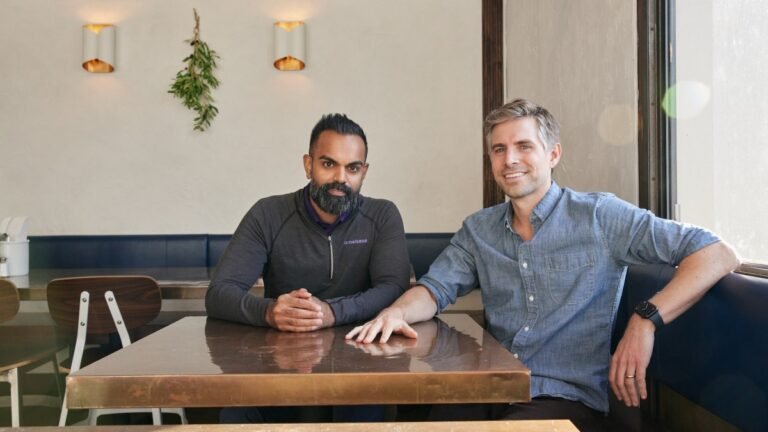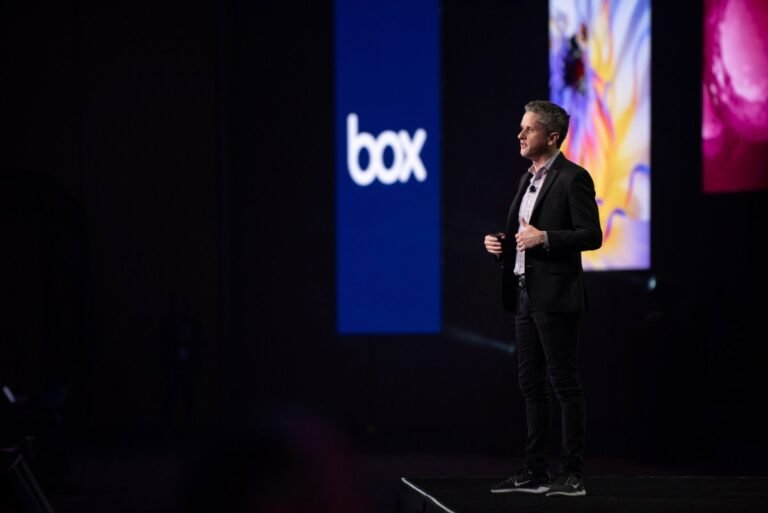
If so, ensuring your cap table and data room are pristine could be the difference between a smooth, swift raise and a drawn-out, costly process.
At TechCrunch Early Stage 2024, join Fidelity Private Shares’ session, “Preparing to Raise: Cap Table Best Practices to Help You Close Fast” to gain invaluable insights from industry experts.
Whether you’re a first-time founder or a seasoned entrepreneur, mastering cap table management is essential for a successful fundraising journey.
Meet the speakersKristen Craft, vice president and business partner manager at Fidelity Private Shares, brings a wealth of experience from both sides of the startup equation.
At Fidelity, she spearheads initiatives to support founders and investors with equity management tools, fundraising strategy, and go-to-market best practices.

Jio Financial and BlackRock to tap India’s wealth management and stock broking marketJio Financial Services, part of the Indian conglomerate Reliance, is forming a joint venture with U.S. asset manager BlackRock to set up a wealth management and stock broking business in India, the two firms said Monday.
The announcement follows BlackRock and Jio Financial launching a joint venture last year to offer asset management services in India.
The two companies plan to invest $150 million each in the joint venture, they said last year.
The expansion of BlackRock and Jio Financial’s partnership underscores Reliance’s growing ambitions in the financial services sector.
Since its public debut in August, Jio Financial Services has already expanded to insurance and lending businesses.

Sprinto, a security compliance and risk platform, has raised a $20 million Series B round to build more automation into its compliance management platform and widen its customer base to include the wide gamut of companies that operate digitally but aren’t tech-first.
Sprinto is working to automate this aspect of security compliance management, which involves vendor risk management, vulnerability assessment, access control, evidence collection and other filing tasks.
Sprinto uses a mix of AI, GPTs and its own internal large language model to offer efficiencies in compliance management.
The market for automated compliance management solutions already has players such as Vanta and Drata, which Sprinto considers its key competitors.
However, Redekar said Sprinto primarily focuses on automating the entire compliance management process and helping businesses build trust.

The round also includes existing investors, Notable Capital, Bain Capital Ventures, Khosla Ventures, Cowboy Ventures and PLUS Capital.
“To have over 2 million workers on Homebase, which is over 2% of the workforce, is impressive for a private company,” Richards said.
In 2021, sources told TechCrunch’s Ingrid Lunden that the company’s valuation was between $500 million and $600 million.
“We are using technology to give workers superpowers and in fact, make the work more human, not less,” Waldmann said.
Small businesses have always provided that, and this, to me, is why our mission is so important to make these jobs even better.”

Vibrant Planet looks to be one of those solutions.
The startup digitizes land mapping and uses AI to help its users — fire departments and government bureaus — better manage land and also better prepare for potential climate incidents like wildfires.
“[It’s] very collaborative with spatially overlapped plans.”Moving the mapping online also allows organizations to work together on land management solutions that work for everyone.
“Vibrant Planet is a science and technology platform that is creating what we call a common operating picture for wildfire resilience and nature resilience,” Wolff said.
And we’re using it in the natural resource management and wildfire resilience building space, because we have to, it’s very urgent.”

For his next trick the Paris-based robotics entrepreneur is fronting work on a far lighter kind of wearable: An arm-worn patch for monitoring chronic kidney disease (CKD).
At the same time rising costs of healthcare provision has increased pressure on services to find smarter ways to tackle expensive issues like chronic disease management, without compromising quality of service.
Biowearables offer a potential route to help square this circle for a range of chronic health conditions.
At the same time Boulanger’s co-founder, Chashchina, was dealing with a chronic health condition.
Metyos cites statistics which suggest there are more than 800 million CKD patients globally.

Tinder-owner Match Group has appointed two new members to its board of directors and signed an agreement with Elliott Management, the company announced on Monday.
Chief marketing officer at Instacart, Laura Jones, and Zillow co-founder Spencer Rascoff, will be joining the board, effective immediately.
Match said in a press release that the appointments followed a “a constructive dialogue” with the activist investor, as the two companies have entered in an “information-sharing” agreement.
“We appreciate the collaboration with management and the Board over the past several months, and we are confident that Laura Jones and Spencer Rascoff are strong additions to the Board.
The activist investor’s push for change at the dating firm follows board shakeups at Crown Castle and Etsy.

A few years later, Levie’s original idea was becoming commoditized, and he switched gears to enterprise content management in the cloud.
Traditional enterprise content management, whether on prem or in the cloud, has involved storing, managing, securing and governing unstructured content.
Today, the industry is changing once more, and Box is again working to position itself on the forefront of that shift.
Levie has always had a knack for seeing where the puck is going, and his company is embracing the software shift toward AI and workflow automation.
Last year, Box bought Crooze, a small company that specializes in workflow automation and metadata management with integrations into Box, making it a logical acquisition target.

Thus, SaaS startups are not category-specific, instead sharing a business model approach more than any particular industry focus.
Among myriad SaaS startups, those focused on selling to business clients — a group often called enterprise SaaS — are a magnet for venture capital.
Since then, investment into enterprise SaaS startups has slowed.
Enterprise SaaS startups raised $21.9 billion, $45.0 billion, $55.1 billion and $58.3 billion in 2017, 2018, 2019 and 2020, respectively.
Perhaps a rate cut or two and a strong enterprise IPO are the tonic required to really reignite venture investment into enterprise SaaS.

Jonathan Winer, the co-founder and co-CEO of SIP, said that the first three data centers designed using Verrus’ architecture will be located in Arizona, California and Massachusetts.
(Alongside the new business, SIP is also launching the Data Center Flexibility Initiative to bring stakeholders like energy companies, tech giants and regulators together in the meantime.)
Observing the strain that data centers in particular have on the electrical grid, SIP turned its attention to those data centers themselves.
Simply building more data centers, whether run by third-party data center operators or by the hyperscalers themselves, will not keep up with demand.
As SIP sees it, simply adding more data centers — which has been the approach up to now — is not a sustainable approach longer term.













